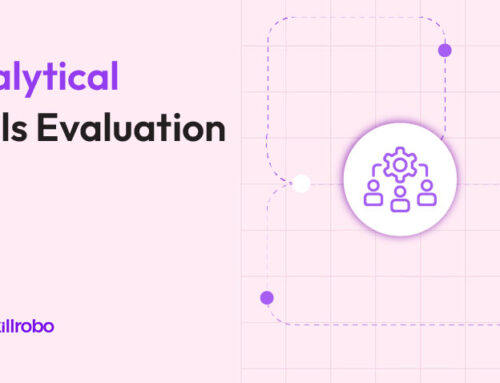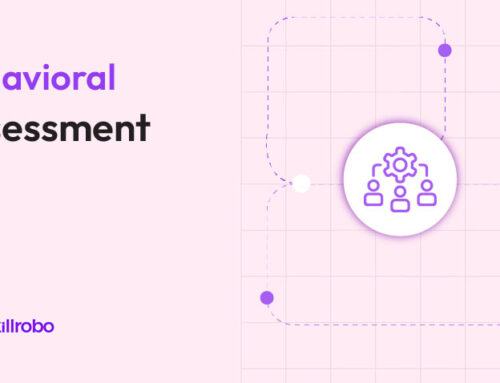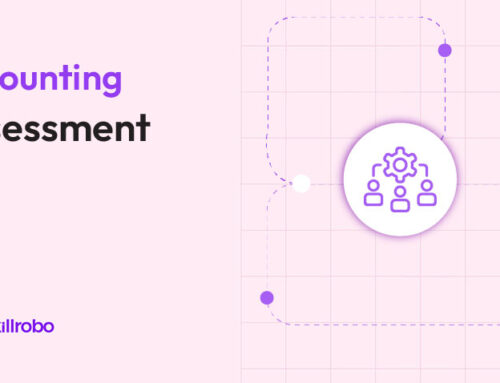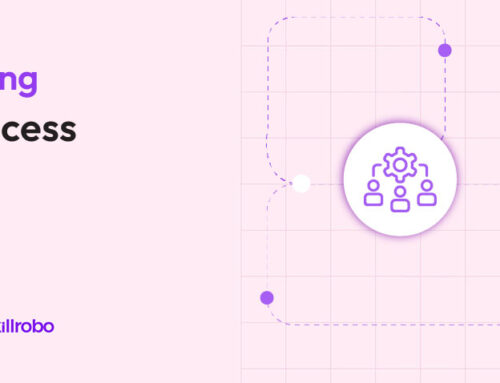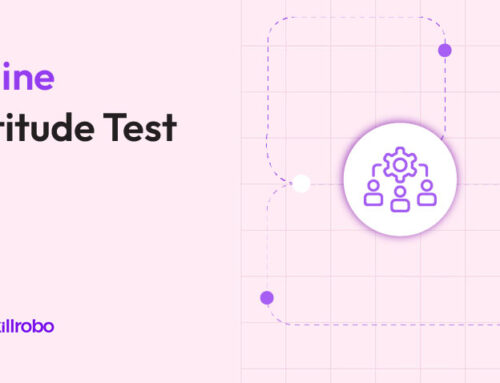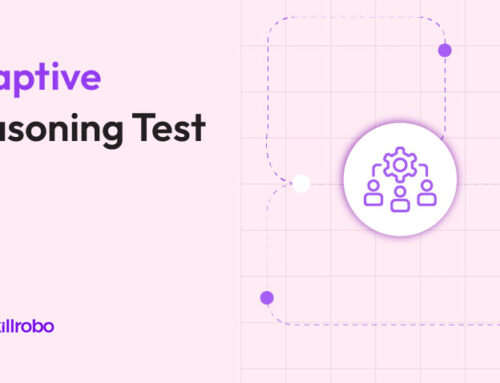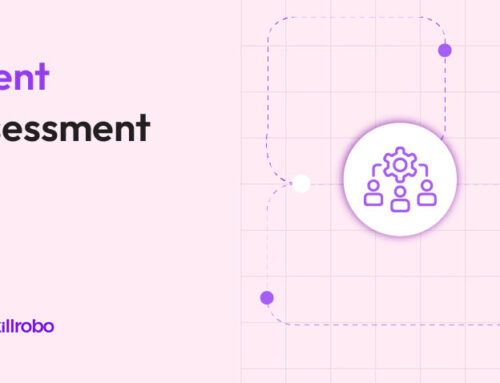Table of Contents
Related articles
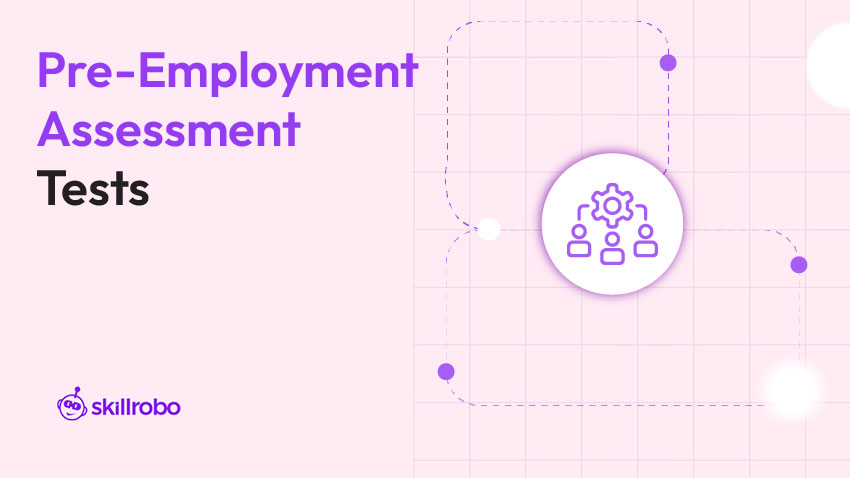
Key Takeaways
-
Pre-employment assessment tests evaluate both technical and behavioral skills, enabling recruiters to make faster, more informed hiring decisions.
-
Different roles require different test types, such as psychometric, aptitude, domain, or communication assessments, making customization essential for accurate evaluation.
-
Practicing and preparing for assessments helps candidates showcase their true potential, while honest responses improve job-role alignment and long-term success.
-
Skillrobo simplifies and automates the assessment process, offering customizable tests, instant analytics, and seamless integration to help organizations hire the right talent efficiently.
The Importance of Pre-Employment Assessment Tests
Pre-employment assessment tests are an important part of candidate screening in the recruitment process. If you have been hunting for jobs in the recent past, then you would have attempted at least one pre-employment skills test for the job vacancies you had applied to. These tests assess the technical and behavioral aspects of a candidate. From the recruiter’s standpoint, pre-employment employee skills assessment helps in screening thousands of potential candidates quickly and effectively.
What are Pre-Employment Assessment Tests?
Pre-employment assessment tests are candidate screening tools that enable recruiters to evaluate potential candidates based on their technical skills and behavioral patterns. These tests, coupled with background verification, help recruiters know the candidate better. Employers are in a position to make informed hiring decisions based on the results of these tests.
Digital pre-employment tests can effectively measure critical traits and skills irrespective of the geographic location of the candidates. Talent may be considered a combination of core traits and acquired skills. The pre-employment assessment strategy must focus on evaluating both these components. Personality traits, behavioral tendencies, and cognitive abilities constitute the core traits of a candidate, while domain, coding, and communication skills make up the acquired skills.
Types of Pre-Employment Assessment Tests
Every job position has different skill requirements, so pre-employment tests must be customized according to the requirements. The recruitment team must choose the tests based on the position for which they are hiring the candidate.
A pre-employment skill assessment platform consists of the following types of tests:
1. Psychometric tests
Psychometric tests are used for evaluating and identifying the key personality traits of the candidate that have a bearing on the cultural fitment, job performance, and trainability of the candidate.
2. Behavioral tests
Teamwork is extremely important for the growth of an organization. Assessing work behaviors, therefore, becomes vital during pre-employment candidate assessment. Behavioral tests provide insights into the real work behavior of the candidate.
3. Aptitude tests
Scientifically designed pre-employment aptitude tests help recruiters screen performance-driven and result-oriented candidates.
4. Coding tests
These tests are for evaluating the technical skills of candidates in their areas of expertise. Integrated coding assessments and simulators are used for scaling up the technical evaluation of candidates.
5. Domain tests
Domain tests are technical assessments that enable recruiters to hire the best talent with in-depth functional knowledge.
6. Communication tests
In addition to in-depth technical and domain skills, candidates must have good communication skills. Pre-employment assessment tools use intelligent speech technology and other communication tests to evaluate the candidate on the nuances of speech and communication.
Tips to Pass the Pre-Employment Assessment Tests
Once you have a good understanding of the types of tests that you will be taking, you can channel your preparation to ace the tests. Rather than looking at them as tests, candidates must look at them as assessments. These assessments are tools to determine how closely the candidate’s skills match the requirements of the role.
Here are some of the tips that help you prepare for the assessment test:
1. Understand the purpose of the assessment
Understanding why you are facing these tests is very important. A clear understanding of why this particular test is being taken by you is required.
2. Be honest
Taking up the test honestly is very important. Giving honest responses to all the questions that test personality and behavioral traits helps the employer understand you better. The assessment tool can also be used by the candidate to find the right position. The employer, on the other hand, can decide if the candidate is a good fit for the role based on the test results.
3. Practice in advance and identify your strengths
You could practice on some online sample tests before you appear for the exam. Taking up sample tests will help in evaluating the difficulty level of each question. While taking the actual test, you can choose and answer selected questions.
4. Negative marking
Before taking the test, clarify if the test has any negative markings for wrong answers. For tests that do not have negative marks, you can take a chance by guessing the answers to questions you are not sure of. But, for those having negative marks, answering questions that you are sure of is better than taking wild guesses.
5. Research well
Before taking a pre-employment aptitude test, you need to do enough research. Evaluation tests often follow a specific format. Reviewing several sample papers will help you understand the pattern and fine-tune your preparation.
6. Time your preparation
Most online pre-employment assessment tests are timed. So while taking up sample test papers, you must keep a tab on the time. Time management helps you allocate time for each question based on the difficulty level.
7. Brush up on technical skills
Make sure that you are thorough in all the technical and domain concepts before taking the exam.
8. Understand your potential employer
Hiring teams are looking for someone who gels well with their management style and has the skill and personality to carry out the job. It would be a good idea to connect with existing employees through LinkedIn or other platforms to learn more about the company. Once you gather more information about the company, you can align your preparation accordingly.
Throughout your preparation for pre-employment assessments, you need to bear in mind that this is only an evaluation of your skills and personality. There is no passing or failing in this test, but rather an assessment of whether your skills and aptitude match the job requirements. The focus should be on brushing your technical and domain skills as per the job description and answering psychometric and behavioral test questions honestly.
Choosing the Right Pre-Employment Assessment Software
The choice of pre-employment assessment tests is an essential decision for the recruitment team.
There are some must-have features of a pre-employment skills test
- Creates competitive and customizable tests that can identify skills and personality traits. The skills test questions must be regularly updated as per the latest technology. The tests must be customizable as per business requirements.
- It should be easy to install and use. The software must be easily and quickly installable. Going through the test questions must be a smooth process with options for revisiting previous questions. The content of the test must be engaging and interactive.
- Should generate instant reports. At the end of the test, the results must be displayed instantly in the form of easily understandable reports and analytics.
- Seamlessly integrated with enterprise apps. Uploading test results to HR evaluation systems must be seamless.
Skillrobo is an online pre-employment assessment test that streamlines the recruitment process. Recruiters can use Skillrobo to sift through thousands of candidate profiles and shortlist the ones that match the job requirements. Customized tests can be created based on unique business requirements. The content of skill tests is constantly upgraded based on the latest developments in technology.
Having a well-defined and organized recruitment process helps improve the brand image externally. A pre-employment assessment test software is the best way to improve the efficiency of the recruitment process. Intuitive online pre-employment skills test software like Skillrobo helps the recruitment team hire highly skilled candidates with personality traits that are a good fit for the role. Sign up for the free trial of Skillrobo to optimize your recruitment efforts.

Key Takeaways
-
Pre-employment assessment tests evaluate both technical and behavioral skills, enabling recruiters to make faster, more informed hiring decisions.
-
Different roles require different test types, such as psychometric, aptitude, domain, or communication assessments, making customization essential for accurate evaluation.
-
Practicing and preparing for assessments helps candidates showcase their true potential, while honest responses improve job-role alignment and long-term success.
-
Skillrobo simplifies and automates the assessment process, offering customizable tests, instant analytics, and seamless integration to help organizations hire the right talent efficiently.
The Importance of Pre-Employment Assessment Tests
Pre-employment assessment tests are an important part of candidate screening in the recruitment process. If you have been hunting for jobs in the recent past, then you would have attempted at least one pre-employment skills test for the job vacancies you had applied to. These tests assess the technical and behavioral aspects of a candidate. From the recruiter’s standpoint, pre-employment employee skills assessment helps in screening thousands of potential candidates quickly and effectively.
What are Pre-Employment Assessment Tests?
Pre-employment assessment tests are candidate screening tools that enable recruiters to evaluate potential candidates based on their technical skills and behavioral patterns. These tests, coupled with background verification, help recruiters know the candidate better. Employers are in a position to make informed hiring decisions based on the results of these tests.
Digital pre-employment tests can effectively measure critical traits and skills irrespective of the geographic location of the candidates. Talent may be considered a combination of core traits and acquired skills. The pre-employment assessment strategy must focus on evaluating both these components. Personality traits, behavioral tendencies, and cognitive abilities constitute the core traits of a candidate, while domain, coding, and communication skills make up the acquired skills.
Types of Pre-Employment Assessment Tests
Every job position has different skill requirements, so pre-employment tests must be customized according to the requirements. The recruitment team must choose the tests based on the position for which they are hiring the candidate.
A pre-employment skill assessment platform consists of the following types of tests:
1. Psychometric tests
Psychometric tests are used for evaluating and identifying the key personality traits of the candidate that have a bearing on the cultural fitment, job performance, and trainability of the candidate.
2. Behavioral tests
Teamwork is extremely important for the growth of an organization. Assessing work behaviors, therefore, becomes vital during pre-employment candidate assessment. Behavioral tests provide insights into the real work behavior of the candidate.
3. Aptitude tests
Scientifically designed pre-employment aptitude tests help recruiters screen performance-driven and result-oriented candidates.
4. Coding tests
These tests are for evaluating the technical skills of candidates in their areas of expertise. Integrated coding assessments and simulators are used for scaling up the technical evaluation of candidates.
5. Domain tests
Domain tests are technical assessments that enable recruiters to hire the best talent with in-depth functional knowledge.
6. Communication tests
In addition to in-depth technical and domain skills, candidates must have good communication skills. Pre-employment assessment tools use intelligent speech technology and other communication tests to evaluate the candidate on the nuances of speech and communication.
Tips to Pass the Pre-Employment Assessment Tests
Once you have a good understanding of the types of tests that you will be taking, you can channel your preparation to ace the tests. Rather than looking at them as tests, candidates must look at them as assessments. These assessments are tools to determine how closely the candidate’s skills match the requirements of the role.
Here are some of the tips that help you prepare for the assessment test:
1. Understand the purpose of the assessment
Understanding why you are facing these tests is very important. A clear understanding of why this particular test is being taken by you is required.
2. Be honest
Taking up the test honestly is very important. Giving honest responses to all the questions that test personality and behavioral traits helps the employer understand you better. The assessment tool can also be used by the candidate to find the right position. The employer, on the other hand, can decide if the candidate is a good fit for the role based on the test results.
3. Practice in advance and identify your strengths
You could practice on some online sample tests before you appear for the exam. Taking up sample tests will help in evaluating the difficulty level of each question. While taking the actual test, you can choose and answer selected questions.
4. Negative marking
Before taking the test, clarify if the test has any negative markings for wrong answers. For tests that do not have negative marks, you can take a chance by guessing the answers to questions you are not sure of. But, for those having negative marks, answering questions that you are sure of is better than taking wild guesses.
5. Research well
Before taking a pre-employment aptitude test, you need to do enough research. Evaluation tests often follow a specific format. Reviewing several sample papers will help you understand the pattern and fine-tune your preparation.
6. Time your preparation
Most online pre-employment assessment tests are timed. So while taking up sample test papers, you must keep a tab on the time. Time management helps you allocate time for each question based on the difficulty level.
7. Brush up on technical skills
Make sure that you are thorough in all the technical and domain concepts before taking the exam.
8. Understand your potential employer
Hiring teams are looking for someone who gels well with their management style and has the skill and personality to carry out the job. It would be a good idea to connect with existing employees through LinkedIn or other platforms to learn more about the company. Once you gather more information about the company, you can align your preparation accordingly.
Throughout your preparation for pre-employment assessments, you need to bear in mind that this is only an evaluation of your skills and personality. There is no passing or failing in this test, but rather an assessment of whether your skills and aptitude match the job requirements. The focus should be on brushing your technical and domain skills as per the job description and answering psychometric and behavioral test questions honestly.
Choosing the Right Pre-Employment Assessment Software
The choice of pre-employment assessment tests is an essential decision for the recruitment team.
There are some must-have features of a pre-employment skills test
- Creates competitive and customizable tests that can identify skills and personality traits. The skills test questions must be regularly updated as per the latest technology. The tests must be customizable as per business requirements.
- It should be easy to install and use. The software must be easily and quickly installable. Going through the test questions must be a smooth process with options for revisiting previous questions. The content of the test must be engaging and interactive.
- Should generate instant reports. At the end of the test, the results must be displayed instantly in the form of easily understandable reports and analytics.
- Seamlessly integrated with enterprise apps. Uploading test results to HR evaluation systems must be seamless.
Skillrobo is an online pre-employment assessment test that streamlines the recruitment process. Recruiters can use Skillrobo to sift through thousands of candidate profiles and shortlist the ones that match the job requirements. Customized tests can be created based on unique business requirements. The content of skill tests is constantly upgraded based on the latest developments in technology.
Having a well-defined and organized recruitment process helps improve the brand image externally. A pre-employment assessment test software is the best way to improve the efficiency of the recruitment process. Intuitive online pre-employment skills test software like Skillrobo helps the recruitment team hire highly skilled candidates with personality traits that are a good fit for the role. Sign up for the free trial of Skillrobo to optimize your recruitment efforts.



